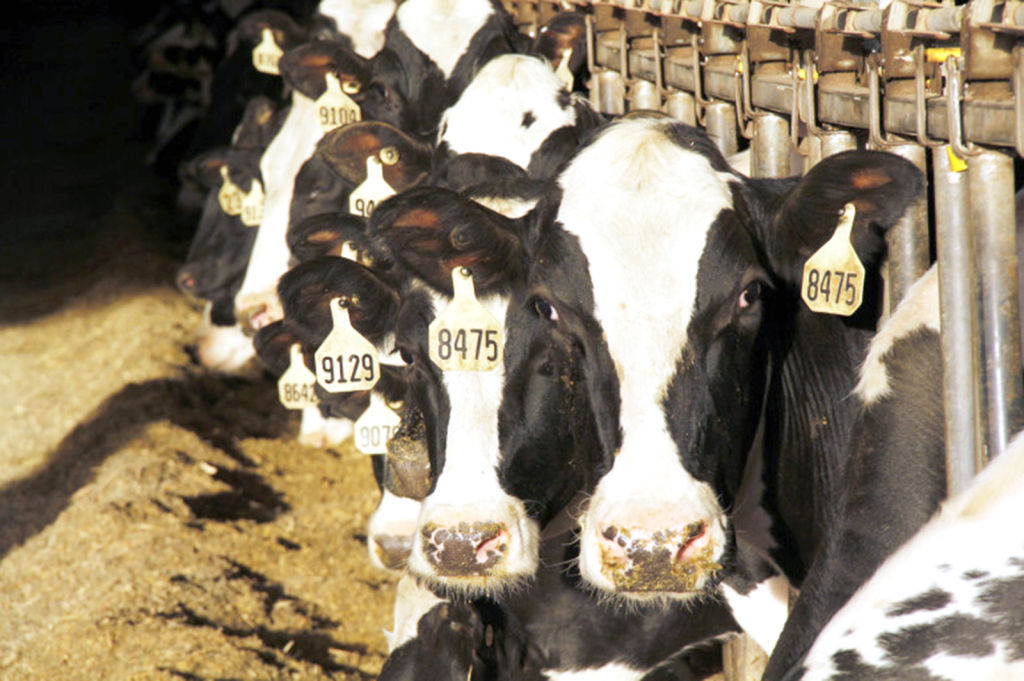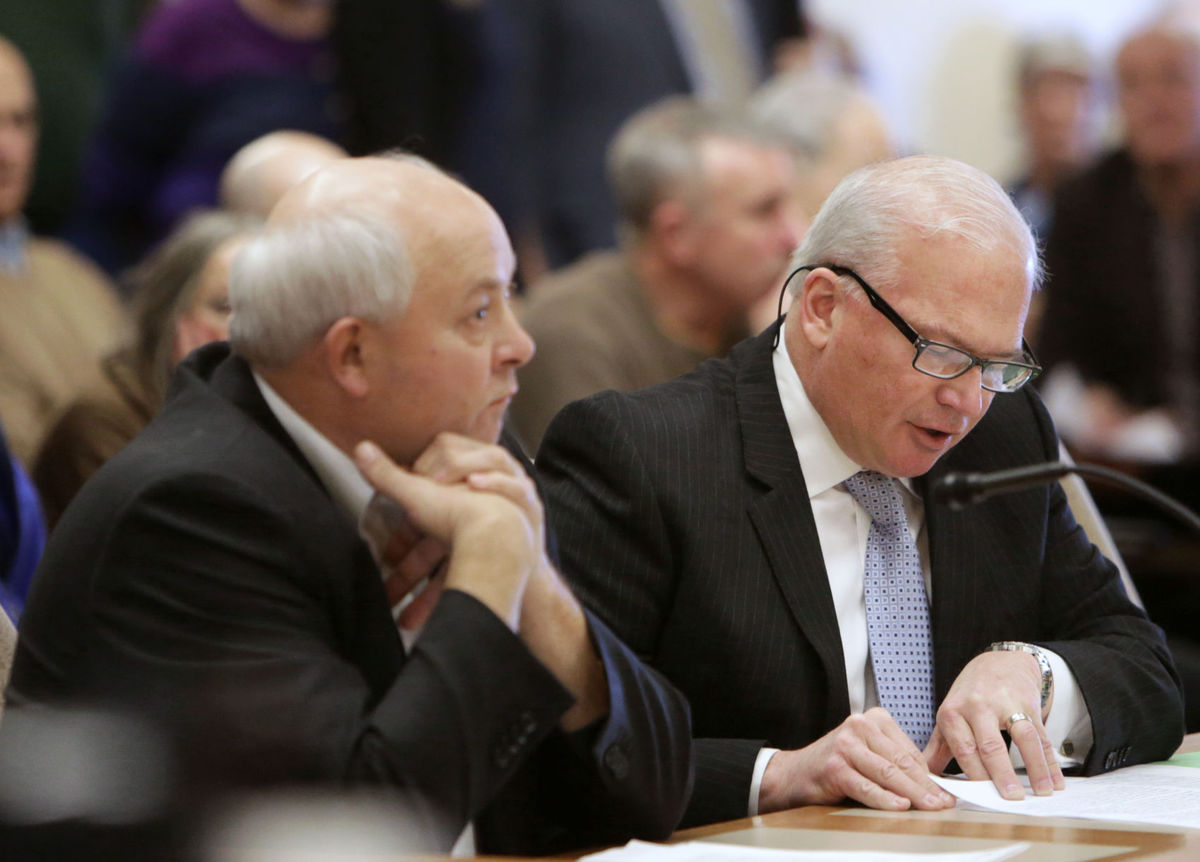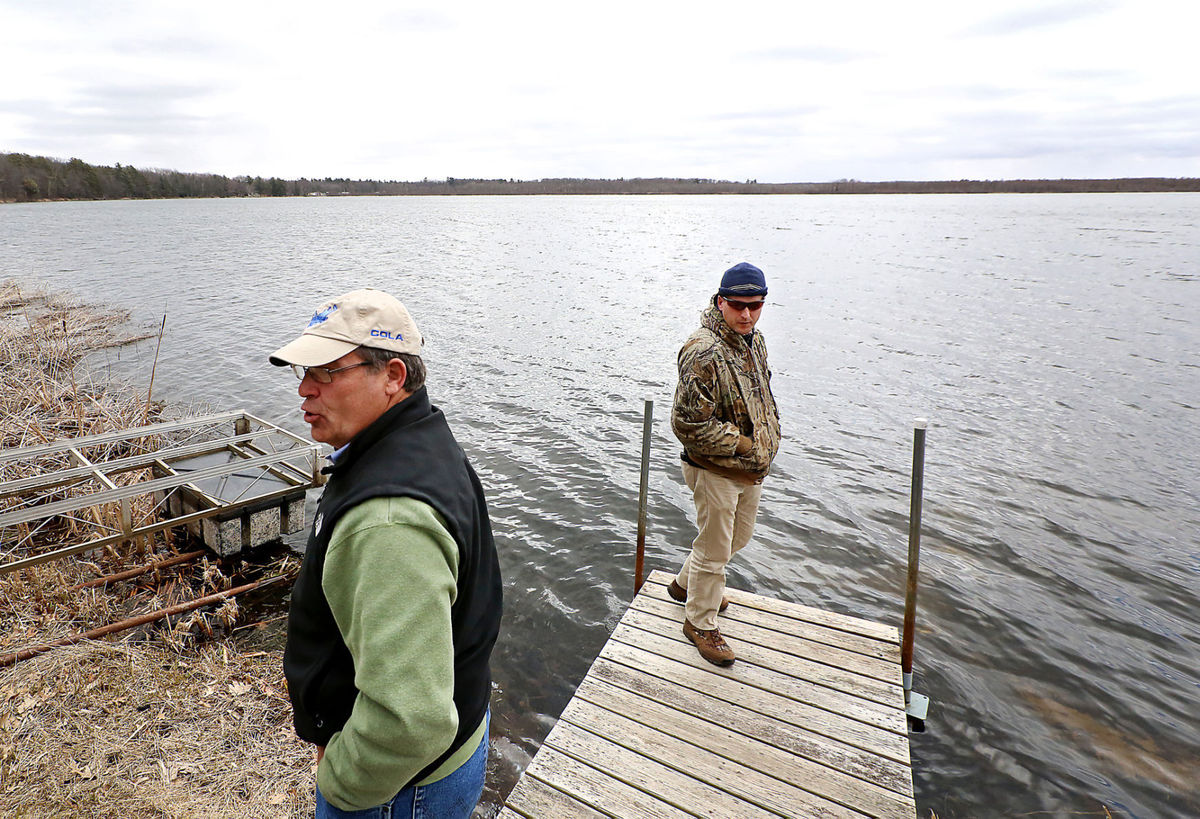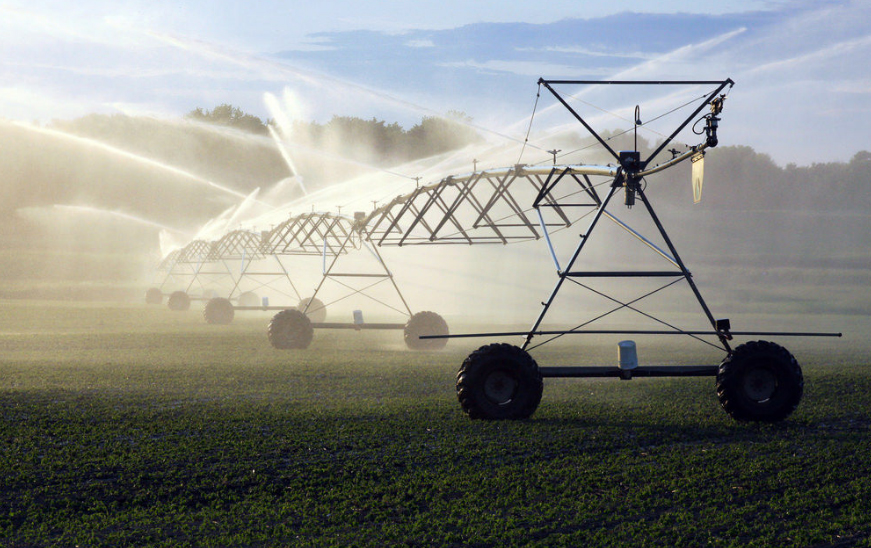The rules include certain practices farmers must follow, such as avoiding certain areas to reduce the possibility of polluting groundwater. "Currently, regulations are uniform across the state. Special action must be taken in eastern Wisconsin in order to meet the groundwater standard, according to the department."
Mucky lakes are a stark reminder
It’s been a bad summer for Madison-area lakes. The Yahara River between lakes Mendota and Monona last month became a dead zone after green scum covered the surface. Heavy and frequent rain washed huge amounts of soil, manure and other phosphorus-laden material into the water, triggering the largest bloom of blue-green algae on Lake Mendota since 1994, according to the UW-Madison Center for Limnology. And when the algae dies and decomposes, it reduces oxygen in the water, killing fish.
When Manure Is Not Manure
Because the liquid-manure environment lacks sufficient oxygen for complete decomposition, the system becomes anaerobic (without oxygen) and the manure putrefies. During the putrefaction of manure, more than 300volatile organic compounds of varying degrees of toxicity are produced
Emerald Sky Dairy's manure spill gives neighbors pause
After more than 20 years of living on their grassy acreage tucked between farms, Chad and Mary Enerson were mortgage-free and the dream of replacing their century-old farmhouse was in sight. Their prospective house overlooked a pond pulsing with chirps and croaks, engulfed in a continuous buzz from the wildlife that gather at dusk. The couple even explored avenues to earn some retirement income from the pond — breeding shrimp or getting a permit to sell salamanders.
Their plans changed when a neighboring dairy applied to expand its concentrated animal feeding operation, or CAFO.
In May 2016, Emerald Sky Dairy owner Todd Tuls of Tuls Dairies applied to the Wisconsin Department of Natural Resources to expand from 2,460 to 8,804 animal units.
Tuls, who took ownership in March 2016, came under fire earlier this year when the WDNR launched an investigation of a large-scale manure spill at the Emerald facility, which occurred in late 2016 and went unreported until March 29.
Support for the CAFO moratorium, sign the petition
The degradation of Wisconsin’s groundwater and surface water is increasing at an appalling pace. Research shows that CAFOs are a major contributor to this degradation. Citizens across the state are rising to the challenge of protecting and restoring Wisconsin’s water quality. As an organization committed to this challenge, Emerald Clean Water for All is proud to stand with Sustain Rural Wisconsin Network and all of its member organizations in support of their CAFO Moratorium effort.
Get more info and sign the petition at https://sustainruralwisconsin.org/support-the-moratorium-sign-on-today/
Lee Luft: State scores a rare trifecta — but Wisconsin farmers and residents don't win
The number of CAFOs, or concentrated animal feeding operations, has shot up in the past decade -- as have concerns about their impact on water quality and quantity.
When will Wisconsin choose a course correction that no longer encourages increasing milk production in a glutted market, or further expansions of CAFOs that require land-spreading of millions of gallons of liquid manure over known vulnerable land, or the drilling of ever-more high-capacity wells? It will happen only when we, individual citizens of Wisconsin, get involved and require that our legislators demand a more reasoned approach and more accountability.
Manure Runoff Plan Coming Soon, Natural Resources Board Member Says
Environmental groups and citizen coalitions, especially in Kewaunee County, have been pushing for reforms.
"We can debate why it took so long to get here, but the bottom line is once the governor and DNR recognized this is a problem, we can't ignore any longer, it got on a fast pace," Prehn said.
Water quality plan needs monitoring for all contaminants — not just nitrates
Sophia Walsh, an environmental health specialist with the Cerro Gordo health department, collects a sample of Jack and Sandy Davis' water on Tuesday, August 9, 2016, in Clear Lake. Jack and Sandy have their water tested twice a year after discovering their well water was contaminated with arsenic.
Studies funded by organizations like Iowa’s Center for the Health Effects of Environmental Contamination identify a host of negative health effects from nitrates, including bladder and thyroid cancer, and birth defects such as brain and spinal cord abnormalities.
Full-throttle agriculture’ squeezing out farmers In Wisconsin, dairy CAFOs are taking a toll on smaller operations
“When you have farmers themselves saying there’s too much milk out there, you know that’s a problem,” said Steven Deller, a University of Wisconsin-Madison agricultural economist.
Now, even some farmers normally against intervention in the free market are calling for some type of supply management system to help keep things in balance.
Wisconsin state officials can point proudly to their recent “wins” – or can they?
Yes, our state can tout these new records but the real winners are hard to find. When will Wisconsin choose a course correction that no longer encourages increasing milk production into a glutted market or further expansions requiring the land spreading of millions of gallons of liquid manure over known vulnerable land, or the drilling of ever more high-capacity wells? Only when we, the individual citizens of Wisconsin get involved and require that our legislators demand a more reasoned approach and more accountability. Take the time to contact those who represent you and your area. Today is not too soon to start.
Nitrate nightmare: La Crosse County advisory brings flood of well tests, worry
Laboratory technologist Alana Clements processes water sampoles at the Lacrosse County Health and Human Servioces building.
The letter from the La Crosse County Health Department came as a shock to Bryana Alameida. She and her husband, Josh, moved last fall into the new home they built in the August Prairie subdivision in the town of Holland with their two young children. Here they were, only half a year in their new home, and the county was warning their water might not be safe to drink.
“We used to live in the city of Holmen and water was never really a concern to us,” said Alameida, who runs her own photography business. “I’m just wondering why we didn’t know anything about this before.”
DNR derelict in not alerting La Crosse County about tainted wells
Since at least 2005, according to a report by the Legislative Audit Bureau, the nitrate levels measured in test wells near the hog operation have exceeded limits set by the state — as much as five times that limit as recently as 2010.
"Maybe the most troubling part of all, however, was the DNR’s response when La Crosse County officials sought state records documenting groundwater problems near that concentrated animal feeding operation.
"Here’s what DNR spokesman Jim Dick told the Tribune: “The DNR doesn’t have a policy regarding notifying municipalities or private well owners in the vicinity when a CAFO violates a permit.”
"Let’s pause on that: A state agency that collects data about environmental quality doesn’t care enough about public health to alert people or the counties where they live about a potential problem with the water they drink.
"Why not?
"Shouldn’t the DNR, shouldn’t someone with the state, care enough about the health of its citizens to alert them to potential problems with drinking water?
"Or, is Wisconsin so entirely open for business that it simply doesn’t care about people anymore?"
State OKs pumping of 1 billion gallons from vulnerable aquifers
The state has revised high-capacity well permits to allow 1 billion gallons of additional groundwater extraction as the Legislature prepares to remove another layer of regulation. Above, Wisconsin Senate Majority Leader Scott Fitzgerald, R-Juneau, with Wisconsin Rep. Gary Tauchen, R-Bonduel, at left, speak in favor of legislation rolling back regulation on high-capacity wells during a public hearing at the Wisconsin State Capitol in Madison.
Industry groups chafed at pumping limits, and said the DNR was overstepping its authority. But independent scientific studies linked high-capacity wells to dwindling water levels that were alarming waterfront homeowners, vacationers and fishing enthusiasts. The GOP’s majority in the Legislature failed several times to pass legislation removing regulations.
In 2016, a committee of GOP legislators led by Assembly Speaker Robin Vos, R-Rochester, asked Republican Attorney General Brad Schimel to issue a formal opinion on well regulation. Schimel said the DNR had overstepped the authority, and the agency stopped making well permitting decisions based on environmental impact of all wells in an area.
Now permits are decided based on the affect of wells on the well owner’s property, without regard to how much is being withdrawn by surrounding wells.
GOP fails oath with high-capacity well bill
High-capacity wells that have been linked to lower surface water are the source of water for irrigation systems like this one watering a cornfield in Waushara County.
In spite of court decisions that require the Department of Natural Resources to manage the waters of Wisconsin for the mutual benefit of all users in accordance with the state constitution, DNR Secretary Cathy Stepp chooses not to do so. She relies on a nonbinding opinion by Republican Attorney General Brad Schimel rather than following the constitution, the courts, and the broad statutory authority granted her department by the Legislature.
"I am baffled and hugely disappointed that current Republicans who control state government would so openly fail their oath to uphold the constitution of the state of Wisconsin."
DNR settles suit by agreeing to move toward lake pollution limit
Runoff from farms is the main source of phosphorus pollution in a growing number of Wisconsin lakes that are listed as “impaired” by the unnatural weed and algae growth the nutrient causes.
Controlling farm runoff has become a major problem in a state that prides itself both in its powerful agriculture industryand its sparkling lakes and streams.
Wisconsin dairy farmers have been duped
What we need is supply management, which would promote fair prices for farmers, a stable supply for consumers and possibly some protection for the environment by limiting the growth of CAFOs. That's not what the state is encouraging.
Fecal Microbes Found in 60 Percent of Sampled Wells in Kewaunee County
“It’s my professional opinion, based on 25 years of experience, that if we sampled more than once, (the contamination rate) would creep up to 90 percent,” Mark Borchardt, a microbiologist with the U.S. Department of Agriculture’s Agricultural Research Service, told the crowd.
Nancy Utesch: DNR's low-key response to Kewaunee's water crisis not nearly enough
Many Kewaunee residents living with water contaminated by bovine manure have absolutely no idea what the DNR's plans are, or how their household can receive help. Homeowners are not only left with the very expensive cleanup costs of well remediation, but must also decipher what system would work in their home, and effectively address their particular contamination issue. Politicians touting low-cost loans to address the contamination offer little solace to citizens suffering from water contamination due to no fault of their own. New wells have been drilled, only to have them come up contaminated in a short duration of time.
Manure Runoff Plan Coming Soon, Natural Resources Board Member Says
Environmental groups and citizen coalitions, especially in Kewaunee County, have been pushing for reforms."We can debate why it took so long to get here, but the bottom line is once the governor and DNR recognized this is a problem, we can't ignore any longer, it got on a fast pace," Prehn said.
Walker got $50M from special interests that will get huge share of state’s water in return
"In particular, large vegetable growers and other mega farms sharply increased their contributions to GOP legislative fundraising committees during the second half of 2016 after a similar bill failed to pass early last year. Large potato and vegetable growers doled out more than $136,000 in individual and corporate campaign contributions in 2016 to current legislators, including about $126,300 to Republicans and $10,250 to Democratic lawmakers."
high-capacity wells have caused some rivers, lakes, and streams around the state to shrink or even dry up during the summer, damaging fish, wildlife, and their habitat.






















